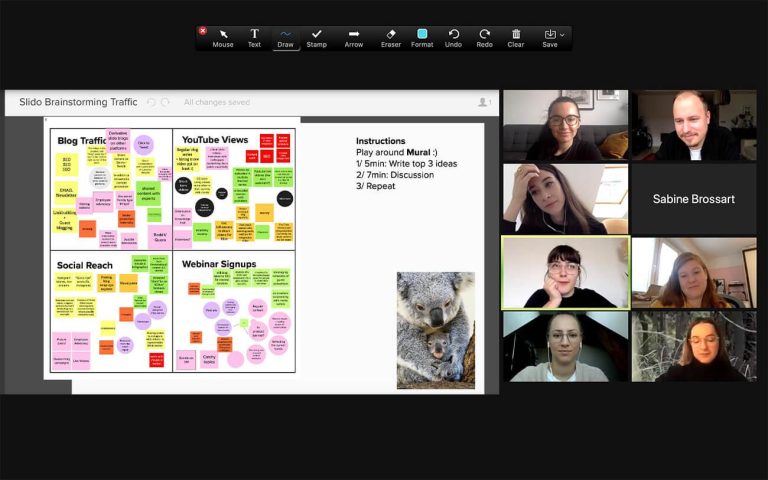Developing Moral Compass: Ethics Activities for Children

Little Jimmy may think he’s slick stealing his sister’s toy without getting caught, but the moral compass police are always on patrol! In a world full of confusing choices and questionable decisions, it’s important to help our kids develop a strong moral compass. So grab your detective hat and magnifying glass as we dive into some fun and entertaining ethics activities for children. Let’s make sure their moral compass points in the right direction – towards kindness, honesty, and maybe a little extra dessert for good behavior. Let the ethical adventures begin!
Exploring the concept of ethics with children
When it comes to teaching ethics to children, it’s important to start with the basics. You can begin by discussing the idea of right and wrong in everyday situations, like whether it’s okay to steal someone’s cookies or pull someone’s hair on the playground.
One fun way to explore ethics with children is through storytelling. Use fairy tales or fables to spark discussions about moral dilemmas and the consequences of different actions. Ask the children to imagine themselves as the characters in the story and consider what they would do in similar situations.
Another approach is to play ethical dilemma games, where children are presented with challenging scenarios and have to decide the best course of action. This can help them develop critical thinking skills and learn to navigate complex moral issues.
Remember, teaching ethics to children is not about giving them all the answers, but rather helping them to think for themselves and make informed decisions. Encourage them to ask questions, challenge their own beliefs, and consider different perspectives. Who knows, you might just be raising the next generation of moral philosophers!
empathy-large-horizontal.jpg” alt=”Teaching children the importance of empathy”>
Teaching children the importance of empathy
Hey parents! So, you’ve got a little one running around the house, causing chaos and wreaking havoc left and right? Fret not, for there is hope! is the key to raising a well-rounded individual who doesn’t turn out to be the next supervillain.
Here are some fun and quirky ways to instill the value of empathy in your little munchkin:
- Lead by example – when your child sees you helping out a neighbor or showing kindness to a stranger, they’re more likely to follow suit. Plus, you get bonus points for being a good role model!
- Use storytelling magic – weave tales of heroes who save the day by showing compassion and understanding. Who needs fairy godmothers when you’ve got empathy?
Remember, teaching empathy isn’t just about making your child a better person – it’s also about securing your future retirement plan. After all, you’ll be one lucky parent if your empathetic child decides to take care of you in your old age, right?

Engaging children in ethical decision-making
Teaching kids about ethics can be a daunting task, but it doesn’t have to be boring! Here are some fun and creative ways to engage children in ethical decision-making:
**1. Role-playing games:** Create scenarios where kids have to make tough ethical choices. For example, they can pretend to be superheroes deciding whether to save one person or a group of people. This helps them think about the consequences of their actions.
**2. Storytelling:** Share moral stories with kids and ask them what they would do in the character’s situation. Encourage them to think about different perspectives and weigh the pros and cons of each decision.
**3. The ethical dilemma jar:** Write down ethical dilemmas on pieces of paper and put them in a jar. Have kids pick a scenario and discuss what they would do in that situation. This can spark interesting conversations and help develop their critical thinking skills.

Fostering critical thinking skills through ethical dilemmas
Have you ever found yourself in a sticky situation where you had to make a tough decision? Maybe you were faced with a moral dilemma or ethical conundrum that left you scratching your head. Well, fear not! By exposing yourself to ethical dilemmas, you can actually enhance your critical thinking skills and become a master problem-solver.
Imagine this scenario: you’re at the grocery store and you notice the cashier accidentally gives you too much change. Do you keep the extra cash or do you return it? This kind of ethical dilemma forces you to consider the consequences of your actions and weigh the pros and cons. It’s like a mental workout for your brain!
By engaging with ethical dilemmas, you can hone your ability to think critically, analyze situations from multiple perspectives, and make informed decisions. You’ll learn to question assumptions, evaluate evidence, and consider the ethical implications of your actions. Plus, it’s a great way to practice empathy and understand different points of view.
So next time you find yourself faced with a moral quandary, embrace it as an opportunity to flex your critical thinking muscles. Whether it’s a real-life situation or a hypothetical scenario, tackling ethical dilemmas head-on can help you become a more thoughtful and ethical individual. And who knows, you might just discover a new way to approach challenges and solve problems along the way!

Encouraging children to act with integrity
Teaching children the importance of acting with integrity is crucial for their growth and development. Here are some fun and creative ways to encourage your little ones to make honest and ethical choices:
- Lead by example - children often mimic the behavior of adults, so be sure to exhibit honesty and integrity in your own actions.
- Encourage open communication – create a safe space for your child to express themselves and talk about any challenges they may be facing.
- Highlight the benefits – explain how acting with integrity can lead to trust, respect, and positive relationships with others.
Remember, it’s important to praise and reward your child when they demonstrate integrity, no matter how small the act. Positive reinforcement goes a long way in reinforcing good behavior!
Lastly, don’t be afraid to have some fun with it! Turn acting with integrity into a game or challenge for your child to complete. Who knows, you might end up with a little honesty superhero on your hands!
Promoting moral courage in children
Teaching kids to have moral courage is no easy task, but with some creativity and patience, it can be achieved. Here are some fun and effective ways to promote moral courage in children:
- Lead by example: Show your kids what it means to stand up for what is right, even if it’s not the popular choice. Let them see you exhibit moral courage in your own life.
- Encourage open discussions: Create a safe space for your kids to talk about moral dilemmas they may face. Help them brainstorm solutions and support them in making the right choice.
- Use storytelling: Share stories of real-life heroes who have shown moral courage. This can inspire kids to do the same and help them see the importance of standing up for what is right.
By instilling moral courage in children, we are not only shaping them into better individuals but also setting them up for success in the future. So go ahead, get creative, and watch your little ones grow into brave and principled individuals!
Instilling a sense of social responsibility in young minds
Teaching kids about social responsibility doesn’t have to be a snooze-fest. In fact, it can be quite fun! Here are a few ways to get those young minds thinking about how they can make a positive impact on the world:
- Lead by example: Kids are like sponges, soaking up everything around them. Be a shining example of social responsibility by volunteering, recycling, and being kind to others.
- Get creative: Encourage kids to use their imaginations to come up with unique ways to help those in need. Whether it’s organizing a bake sale for charity or creating handmade cards for nursing home residents, the possibilities are endless!
- Start small: Big changes start with small steps. Teach kids that even the smallest acts of kindness can make a huge difference in someone’s life. Whether it’s holding the door open for a stranger or picking up litter at the park, every little bit counts.
Remember, is a journey, not a destination. Keep the conversation going, lead by example, and above all, have fun with it!
FAQs
How can I teach my child about ethical decision-making?
Teaching your child about ethical decision-making can be as easy as playing a game of “Would You Rather” with a moral twist! Ask your child questions like, “Would you rather cheat on a test and get an ‘A’ or study hard and earn a ‘B’?” This will get them thinking about the consequences of their actions.
What are some activities I can do with my child to help them develop a strong moral compass?
One fun activity to do with your child is creating a ”Kindness Jar.” Each day, have your child write down one kind thing they did for someone else and put it in the jar. At the end of the month, you can read all the acts of kindness together and celebrate their good deeds.
How can I help my child understand the importance of honesty and integrity?
To help your child understand the importance of honesty and integrity, try playing a game of “Truth or Dare” with a twist. Instead of daring your child to do something silly, have them share a time when they were honest in a difficult situation. This will show them the power of honesty and how it can build trust in relationships.
What are some real-life examples I can use to teach my child about ethical behavior?
One real-life example you can use to teach your child about ethical behavior is discussing a recent news story where someone had to make a tough ethical decision. Ask your child how they would have handled the situation and discuss the potential consequences of different choices. This will help them see the real-world impact of their actions.
How can I encourage empathy and compassion in my child?
One way to encourage empathy and compassion in your child is by volunteering together as a family. Whether it’s serving meals at a local homeless shelter or participating in a charity run, these experiences will help your child see the world from a different perspective and develop a sense of empathy for others.
Time to Get Ethical!
Now that you’ve got some great ideas for developing your child’s moral compass, it’s time to put them into action! Get ready for some serious ethics activities that will have your little ones thinking, questioning, and debating like mini philosophers. Who knew ethics could be so fun? So go ahead, engage in some ethical dilemmas, play some moral compass games, and watch as your children grow into thoughtful, compassionate, and oh-so-ethical individuals. Let the ethical adventure begin!






